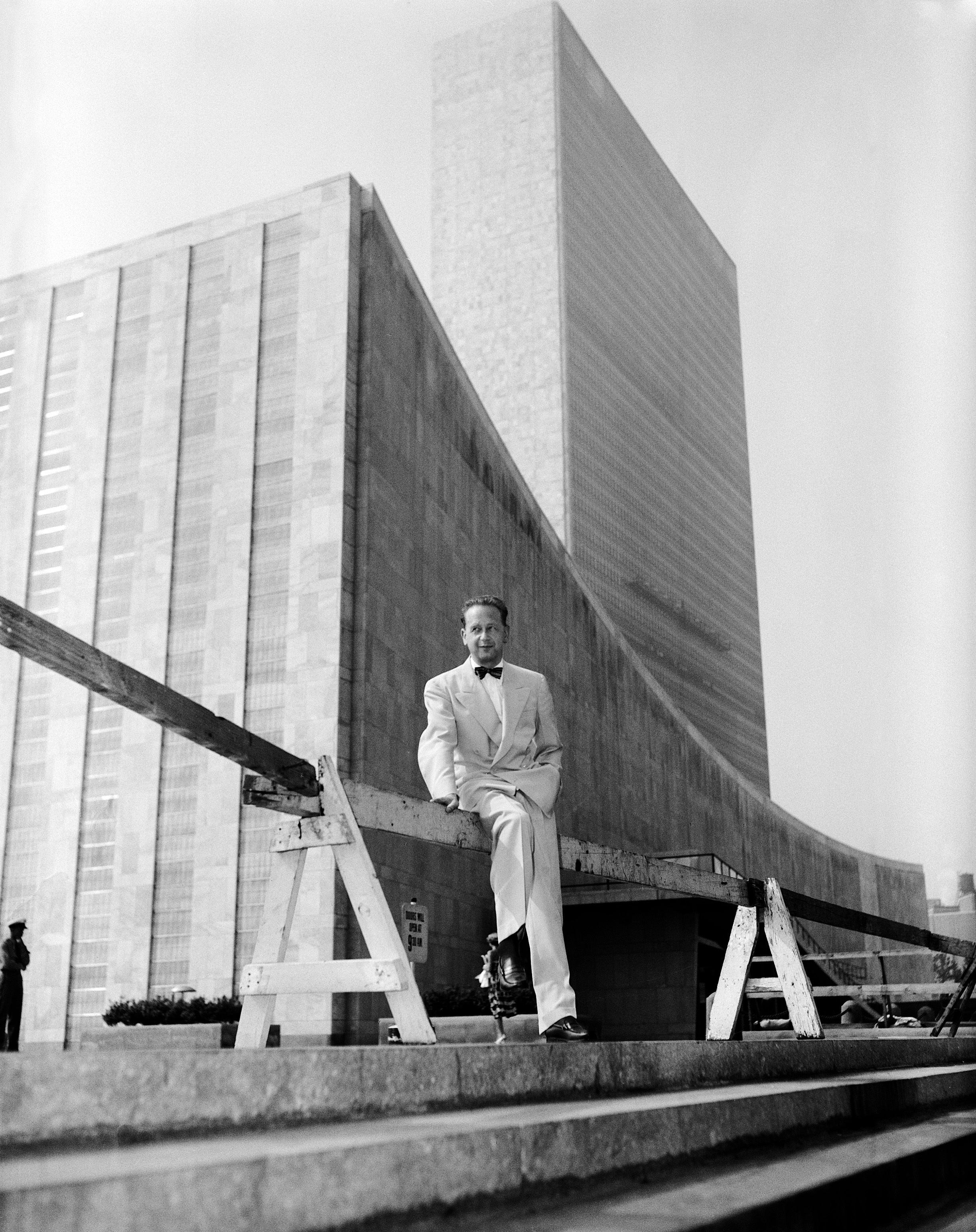United Nations and the Nordic countries
The principles and aims of the United Nations resonate in the Nordic countries, which are small welfare states with an appreciation of international law, solidarity and multilateral problem-solving. From the time of the League of Nations (the precursor to the United Nations) to the 1990s, the Nordic region developed and operated a caucusing and voting group with considerable authority in its own right. People from the Nordic countries have held influential positions at the United Nations, such as Trygve Lie and Dag Hammarskjöld in the 1950s and 1960s.

Norway and Denmark became signatories of the United Nations Charter of June 1945, whereas Iceland and Sweden gained admission at the first session of the General Assembly in November 1946. Finland applied for United Nations membership after the Soviet ratification of the Paris Peace Treaty in September 1947, but was not admitted until December 1955 due to a tug-of-war concerning new admissions between the super-powers in the emerging Cold War.
Caucusing and voting group
Taking up their collaboration at the League of Nations, Nordic governments maintained special mutual relations at the United Nations from the outset and eventually developed the profile of a caucusing and voting group with considerable moral leverage. This authority was derived from their particular ideational and material support of the United Nations’ cause and from their bridge-building approach to international relations during the Cold War and in regard to relations between North and South. Once Finland and Sweden joined Denmark as members of the EU in 1995, the Nordic group in the United Nations practically ceased to exist due to the evolving foreign policy coordination routines of EU members.
Prominent roles for Nordic nationals
The first Secretary-General of the United Nations was the Norwegian Trygve Lie (1946–1953); his successor, the Swede Dag Hammarskjöld (1953–1961), managed to give unsurpassed weight to the United Nations in world politics. Other Nordic citizens have played prominent roles in the United Nations as well; from the beginning of United Nations peace-keeping missions, in connection with the Suez Crisis of 1956, Danes, Finns, Norwegians and Swedes have been particularly engaged in these activities. A distinctive Nordic feature is the high level of support the countries provide to the United Nations development agencies and the distribution of a comparatively high share of their international development aid through these agencies.
United Nations’ aims resonate in the Nordic countries
Commitment to the United Nations has gained a paradigmatic character. This forms part of the Nordic identity and corresponds to the genuine foreign policy orientation of these small welfare states with an appreciation of international law, solidarity and multilateral problem-solving. In addition to sending diplomats to the General Assembly, the Nordic countries have a tradition of including politicians, from both governing and opposition parties, as well as representatives of civil society in their delegations. In this way, United Nations policies have been given a societal foundation and have received unusually pronounced resonance in the Nordic region.
Further reading:
- K.V. Laatikainen, ‘Norden’s eclipse: The impact of the European Union’s common foreign and security policy on the Nordic group in the United Nations’, Cooperation and Conflict 38 (2003) pp.409-441.
- N. Götz, Deliberative Diplomacy: The Nordic Approach to Global Governance and Societal Representation at the United Nations (Open Access/Dordrecht: Republic of Letters, 2011).
- P.V. Jakobsen, ‘The United Nations and the Nordic Four: Cautious Sceptics, Committed Believers, Cost-benefit Calculators’, in P. Nedergaard and A. Wivel, The Routledge Handbook of Scandinavian Politics (London: Routledge, 2018).